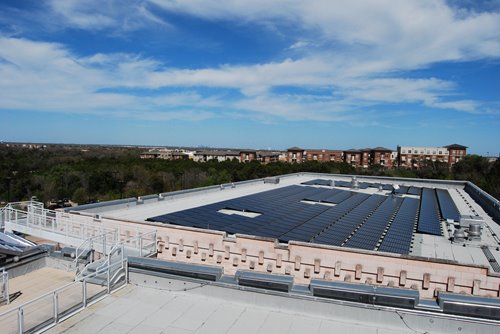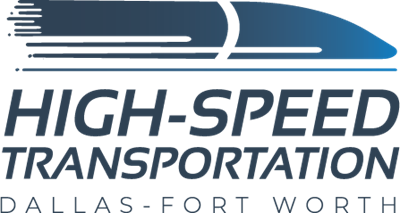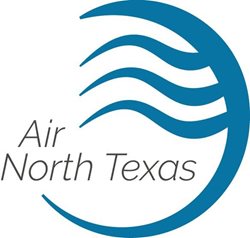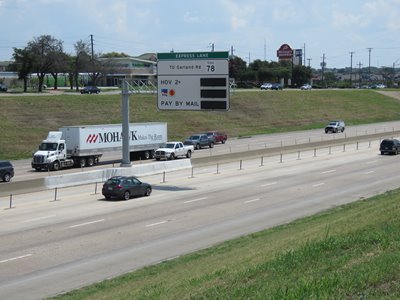SolSmart recognizes NCTCOG’s solar achievements
The North Central Texas Council of Governments has received a Bronze designation from the national SolSmart program for helping local governments across the Dallas-Fort Worth area make it faster, easier, and more affordable to go solar.
The SolSmart designation recognizes NCTCOG for helping communities remove obstacles to solar energy development.

Solar panels were installed on top of Cedar Hill Government Center in 2011
and are capable of saving approximately $21,000 a year in electricity costs.
Cedar Hill is one of six communities across Dallas-Fort Worth recognized for
its leadership in solar energy.
NCTCOG has guided local governments through solar energy training sessions and educational resources available on the Go Solar Texas website, www.gosolartexas.org. NCTCOG launched the website as a comprehensive guide to increasing solar deployment across Texas. It includes steps for homeowners to go solar, best management practices for local governments, an extensive resource library, training for a variety of audiences, including real estate professionals and fire and code officials, and much more.
NCTCOG has also hosted training sessions for fire and emergency medical professionals on safely responding to house fires where solar panels are installed.
The SolSmart designation recognizes both recent accomplishments and years of leadership from NCTCOG in advancing solar energy growth in Texas. Beginning in 2017, NCTCOG served as a SolSmart advisor, providing technical assistance on solar energy to communities.
To date, six Dallas-Fort Worth communities have achieved SolSmart designation. Cedar Hill and Corinth were designated SolSmart Gold; Kennedale was designated SolSmart Silver; and Denton, Lewisville, and Plano were designated SolSmart Bronze. NCTCOG plans to expand its outreach to help more North Texas communities achieve SolSmart designation. Municipalities and counties interested in technical assistance on solar energy can contact energy@nctcog.org.
North Texans one step closer to high-speed transportation
North Texans are one step closer to a new form of transportation, as the Dallas-Fort Worth High-Speed Transportation Connections Study begins its first phase of public meetings. The study is evaluating high-speed transportation alternatives (both alignments and technology) to modernize and enhance mobility between Dallas and Fort Worth. This would accommodate growth and provide residents with the safe, reliable and efficient travel they expect.
NCTCOG’s Metropolitan Transportation Plan, Mobility 2045, includes high-speed transportation between Dallas and Fort Worth as a future transportation choice, to accommodate an expected population exceeding 11 million by 2045.NCTCOG, in coordination with the Federal Railroad Administration and Federal Transit Administration, is studying this high-speed connection that would link the planned Dallas-to-Houston high-speed rail service to a potential future high-speed service between Fort Worth and South Texas.

Currently, the study is reviewing high-speed transportation options in the Dallas-Arlington-Fort Worth corridor by analyzing potential routes, transportation modes, operations/service planning, and preparing preliminary engineering and environmental documentation for high-speed passenger service.
The study area includes Dallas and Tarrant counties and the cities of Dallas, Irving, Cockrell Hill, Grand Prairie, Arlington, Pantego, Dalworthington Gardens, Hurst, Euless, Bedford, Richland Hills, North Richland Hills, Haltom City and Fort Worth. The study team is in the first phase of engaging and informing agencies, the public and stakeholders. The project will identify a viable alternative that enhances the regional transportation system.
Make clean air choices every day

Residents who made commitments to help improve air quality as part of Clean Air Action Day are encouraged to tell their friends by posting about the changes they chose on social media. With the continuing COVID-19 pandemic, many changes were made to this annual celebration, held this year on August 5. Instead of participating in large gatherings, North Texans were encouraged to observe social distancing protocols while aiming to improve air quality.
Many social distancing strategies, such as working from home, can double as clean air strategies in the fight against COVID-19. They can also be continued long after CAAD and be incorporated into people’s normal routines. It is important to work toward better air quality every day, especially in Dallas-Fort Worth, which remains in nonattainment for ozone pollution.
There are several ways residents can contribute to clean air throughout the year.. They can plan the most fuel-efficient route and combine trips when they have to drive. Other examples include bicycling or walking to the store, packing lunch in a reusable bag, and buying locally grown foods. A good first step to better air quality is signing up for air pollution alerts at www.airnorthtexas.org/signup. Individuals will be notified when ozone levels are predicted to be unhealthy so they can take extra precautions and limit actions that affect air quality on those days. Visit www.airnorthtexas.org/howto for resources and information on programs that can help improve air quality each day.
Document explains funding shortfall in transportation
Dallas-Fort Worth’s population of more than 7.5 million makes it the fourth-largest metropolitan area in the nation. The 12-county area has grown by 1.2 million people since 2010. It is expected to continue its rapid expansion through 2045, when its population could exceed 11.2 million.
Traditional transportation revenue sources are not keeping up with the expanding region’s needs. But planners and policymakers continue to search for solutions that will help residents move throughout the region reliably. NCTCOG has published a fact sheet to explain how transportation needs can be met well into the future. Even with billions of dollars of improvements planned through 2045, there is still a shortfall anticipated. Identifying additional transportation revenue is key to reducing congestion across North Texas. The Regional Transportation Council has embraced innovation in an effort to complete major projects. The RTC works collaboratively with local, State and federal partners to direct funding to projects that improve efficiency.
The region’s continued growth has made it a crucial part of the statewide economy. To learn more about how NCTCOG is working to address the region’s funding needs, visit www.nctcog.org/factsheets.
TTI seeks input on region’s express lanes
The Texas A&M Transportation Institute is conducting research on express lane users in Dallas-Fort Worth and other metropolitan areas across the country. The focus of the survey, also being conducted in Miami, Los Angeles and Washington, DC, is to determine how satisfied users are with the express lanes and if the lanes meet their objectives.
TEXpress Lanes have been operating as an additional mobility choice in select corridors throughout the Dallas-Fort Worth area since 2014. In corridors such as LBJ Express and North Tarrant Express, motorists have the option of using tax-supported lanes for no toll or paying for a smoother ride in the TEXpress Lanes. The lanes are dynamically priced to provide more-reliable travel times, even during peak periods.
Participate in the survey by clicking here. It focuses on questions about travel before the COVID-19 pandemic, but also seeks information on how driving has changed.

The Texas A&M Transportation Institute is surveying users
of the Dallas-Fort Worth's Tolled Managed Lane System and
other express lanes in various regions.
Task force to study continued AQ improvement
NCTCOG is working on a project to better understand health-related air quality impacts attributed to the transportation sector.
As part of this project, NCTCOG has convened a task force of government representatives, health officials, academic representatives and air quality experts to evaluate regional data that may indicate where additional air quality improvement is needed. The task force will also seek to address concerns over localized air pollution, with a focus on transportation sources.
Through this task force, NCTCOG hopes to facilitate peer exchange and evaluate where more work associated with the health implications of traffic-related air pollution is needed.
For more information regarding this project and to join the next task force meeting, please contact Dorothy Gilliam at dgilliam@nctcog.org.
The next meeting is scheduled for 9:30-11:30 a.m. August 21.
N. Texans invited to provide transportation input
Beginning August 10, North Texans are invited to comment online on several current transportation planning initiatives, including the effects of COVID-19 on regional transportation, emissions-reduction plans, potential funding awards and federal performance measures. Comments will be accepted through September 9.
To help the public better understand the impacts of COVID-19 on the transportation system, NCTCOG staff will provide an update on several performance metrics. These policy metrics address financial implications of the pandemic, travel behavior responses and benefits, and offsetting unemployment increases.
Staff will also provide the public with updates on several project initiatives. In 2019, the Federal Highway Administration awarded funding to NCTCOG to develop the Interstate Highway 45 Zero Emission Corridor Plan to support both battery electric and hydrogen fuel cell electric vehicles along IH 45 from Dallas to Houston.
Staff is seeking stakeholder involvement from fuel providers, fleets, infrastructure developers, fuel associations, government agencies, utilities and interest groups. An update on planning progress will be provided as part of this online input opportunity.
Additionally, staff will present recommended projects to receive funding as part of the 2020 Transportation Alternatives Call for Projects.
Finally, staff will discuss recent federal transportation rules that re-quire metropolitan planning organizations to monitor and set targets for a specific set of performance measures. Observed trends, project implementation and the effects of COVID-19 will impact the decision on whether target adjustments will be recommended.
The department’s new interactive map tool, the Regional Smoking Vehicle Program, vehicle incentive opportunities and administrative revisions to Mobility 2045, the region’s long-term transportation plan, will also be highlighted. An audio recording of the presentations will be posted at www.nctcog.org/input.
- Imagery provided by NCTCOG staff, TxDOT